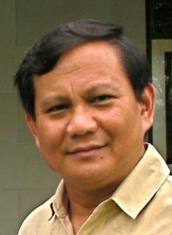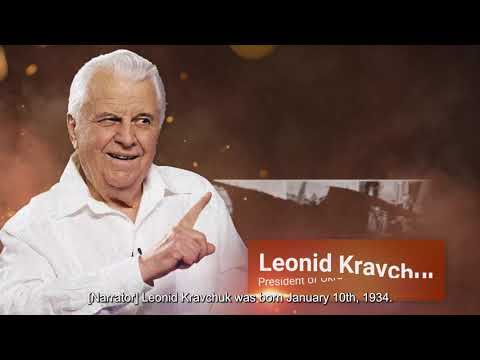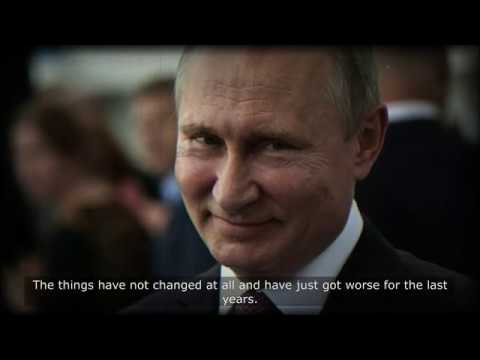Indonesia,s Prabowo Subianto Tops Presidential Polls Of Indonesia 2014
“There was no deal. There were no serious discussions in Bali,” he said. “As a national leader it only makes sense that he would want good relations with all possible successors.”.
Recent polls put the controversial but charismatic leader of one of Indonesia’s smallest parties at the front of the race to succeed President Susilo Bambang Yudhoyono. Though the president’s second and final five-year term won’t end until 2014, dissatisfaction with his government after a series of corruption scandals and abandoned reforms already is spurring many Indonesians to focus on who will replace him. The outcome could help determine whether Southeast Asia’s largest economy continues to be a source of stability and prosperity in the region, or reverts to the chronic instability that scared off investors for years after the Asian financial crisis.
Early election fever has complicated matters for President Yudhoyono, who has been unable to rally support to push through unpopular changes such as a cut in fuel subsidies—which parliament rejected earlier this year—that analysts said was needed to fund infrastructure and other priorities.
The rising support for Mr. Prabowo, despite his associations with a more tumultuous period of Indonesia’s past, underscores the frustration of many Indonesians even as their country’s economy grows rapidly.
President Yudhoyono is widely credited with stabilizing the vast archipelago nation after the Asian financial crisis. But Indonesia now suffers from massive transportation bottlenecks, power shortages and corruption imbroglios that have left many voters eager for a strong hand.
“People are becoming despondent and also disillusioned,” Mr. Prabowo said in an interview in his expansive hilltop homestead overlooking valleys of corn and cassava about 90 minutes outside of the capital. “There is a loss of confidence in the leadership and the institutions, which is very dangerous.”
But he added: “I don’t think it is feasible to turn back the clock. Whatever I would like to do, I don’t think it is feasible. I think we have to work harder to create consensus, work harder to get a mandate from the people.”
Prabowo, the son of one of Indonesia’s most respected economic planners, has said he is not against foreign investment.
“We want foreign investment, but it must be win-win,” he said. “It must be rational, it must be cognisant of local and environmental needs and it must be on a fair and level playing field.”
In his speech, he said the country needed to avoid depletion of its energy and other resources, control population growth, improve governance and bring in structural changes in the economy to benefit the poor and the farmers, who form the majority of Indonesia’s 240 million people.
The country was once Asia’s only member of the Organisation of Petroleum Exporting Countries (OPEC) but left the group and is now a net importer, although it has vast natural gas reserves and has some of the world’s largest coal deposits.
Prabowo’s focus was, however, on agriculture, and he advocated using bio-fuels to back up fossil fuel reserves.
“Sixty percent of our population live on agriculture and are allocated three percent of the national budget in 2012,” he said.
“This is not viable. This is not wise, this a formula for misery, for unrest. This will degrade social harmony. This is what we have to have the courage to address.”
Prabowo is also feared by some of Indonesia’s ethnic Chinese minority, who control much of the country’s $1 trillion economy and were targeted in the 1998 mayhem that was orchestrated by thugs believed to be organised by special forces soldiers.
“I am very committed to a united Indonesia regardless of race, religion and background,” he said in response to a question on his policy towards the ethnic Chinese.
“My political party has a lot of members from many, many backgrounds and races. We have a lot of Chinese members but of course most of them are middle class and poor Chinese. We don’t think about race in our party.”
n the 1990s, Subianto was instrumental in forcefully defending the Suharto regime from perceived threats, and he was therefore diametrically opposed to the reformist elements that gave rise Indonesia’s democratization,” said Kevin O’Rourke, the Jakarta-based author of “Reformasi,” a book on Indonesia’s transition to a democracy in the late 1990s. “His high ranking in recent presidential preference polls reflects disenchantment with other aspiring nominees.”
Mr. Prabowo was never charged with any wrongdoing. He said in the interview he hasn’t been involved in any human-rights abuses and that political rivals have spread false rumors about him. “This is the risk of being a military leader. When you serve a government and serve your country, then when politics change, we have to face the risk of allegations,” he said.
His military record may be his strongest suit, supporters and some analysts say.
“He is known for being able to make decisions under pressure,” said Sabam Rajagukguk, 32, a supporter and member of Mr. Prabowo’s Gerindra political party. “Look at Singapore or look at [South] Korea: All the Asian countries that are doing well have had leaders who could make decisive decisions and are not afraid to be unpopular.”
In a May survey by the Indonesian Survey Institute, Mr. Prabowo was tied for first with former president Megawati Sukarnoputri, whom President Yudhoyono beat in 2004 and 2009—the second time with Mr. Prabowo as running mate—and who could legally run again. At least one other recent survey by another institution puts Mr. Prabowo alone at the top, with the support of 26% of the voters surveyed.
It isn’t yet clear who will lead the Democrat Party of Mr. Yudhoyono, who has insisted he remains focused on tasks such as rooting out corruption and expanding infrastructure. Other expected candidates, most of whom are undeclared, include former vice president and businessman Jusuf Kalla and Aburizal Bakrie, one of Indonesia’s wealthiest tycoons with interests in coal, property and other businesses.
Mr. Prabowo says it is his military background that helps differentiate him. A career solder from a wealthy family, he married Suharto’s daughter and became one of the country’s youngest generals. After Suharto’s ouster, Mr. Prabowo divorced the daughter, although the date of the split isn’t publicly known and Mr. Prabowo declined to discuss it.
His family’s wealth has grown with investments in oil, coal and palm oil. His brother Hashim Djojohadikusumo is worth more than $700 million, according to the most recent Forbes survey. Mr. Prabowo has climbed to the top of political parties, first within Golkar, Suharto’s old party, and then with his own party, the Great Indonesian Movement party, or Gerindra.
He promises to use military-style efficiency to push through chronically delayed infrastructure projects, as well as to create jobs in the archipelago’s backwaters by improving agricultural productivity. He proposes to spend more on new farming equipment and wants to reclaim five million hectares of damaged forest land for farmers.
He shares his massive home base in the hills with hundreds of goats, which he is breeding, he says, to improve the stock in Indonesia. His herd of milking cows, he says, is being developed to boost milk production in the country. He has 13 thoroughbred Portuguese horses he rides regularly to practice dressage, an equestrian sport, as well as a giant German shepherd, Baron, and a falcon named Elly.
Mr. Prabowo says his party has a relatively clean record on corruption, long considered a serious problem in Indonesia. Only around six of the 600 national and local politicians in office from his party have ever been implicated in corruption scandals, he says, and those six were sacked.
Another pillar to Mr. Prabowo’s platform is that he is solidly secular, and his party plans to protect the rights of minority religious groups in the Muslim-majority country. As if to underline his party’s secular roots, more than 100 of its young male and female party workers on Mr. Prabowo’s property recently practiced the cha-cha on his arena grounds.
His inner circle of party workers is also peppered with former military people. Saluting is common in his home. His library is packed with military books and a collection of swords and tradit ional knives. His walls, and his Facebook page, are full of photos and paintings of him in uniform. While he jokes that he is now a farmer, he more often refers to himself as a soldier.
“My military training has taught me to concentrate,” he said. “You cannot win on five fronts—you must select one or two.”
President Yudhoyono was also a soldier, and when the president asked Mr. Prabowo to join him for a private chat at an event in Bali recently, many political commentators speculated the president was crowning a favored successor.
No such overtures were made, Mr. Prabowo said.
“There was no deal. There were no serious discussions in Bali,” he said. “As a national leader it only makes sense that he would want good relations with all possible successors.”


